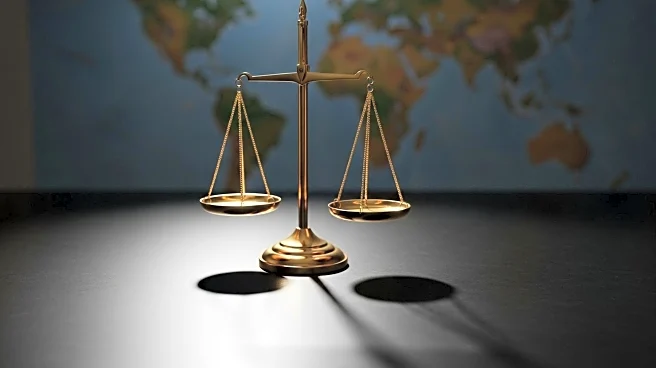What's Happening?
The United States is contemplating imposing sanctions on the International Criminal Court (ICC) as a response to its investigations into alleged Israeli war crimes. Washington has previously targeted individual ICC prosecutors and judges with sanctions, but extending these to the court itself would mark a significant escalation. The ICC, based in The Hague, has been involved in controversial investigations, including issuing an arrest warrant for Russia's President Vladimir Putin over alleged war crimes in Ukraine.
Why It's Important?
Potential U.S. sanctions against the ICC could strain international relations and impact the court's ability to function effectively. Such measures may deter the ICC from pursuing cases involving U.S. allies, raising concerns about the politicization of international justice. The move could also affect global perceptions of the U.S. commitment to human rights and international law. Stakeholders in international justice systems may need to navigate complex diplomatic challenges as tensions rise.
What's Next?
If the U.S. proceeds with sanctions, it could lead to diplomatic backlash from countries supporting the ICC. The court may face increased pressure to justify its investigations and maintain its independence. The situation could prompt discussions on reforming international legal institutions to address concerns of bias and political influence.












